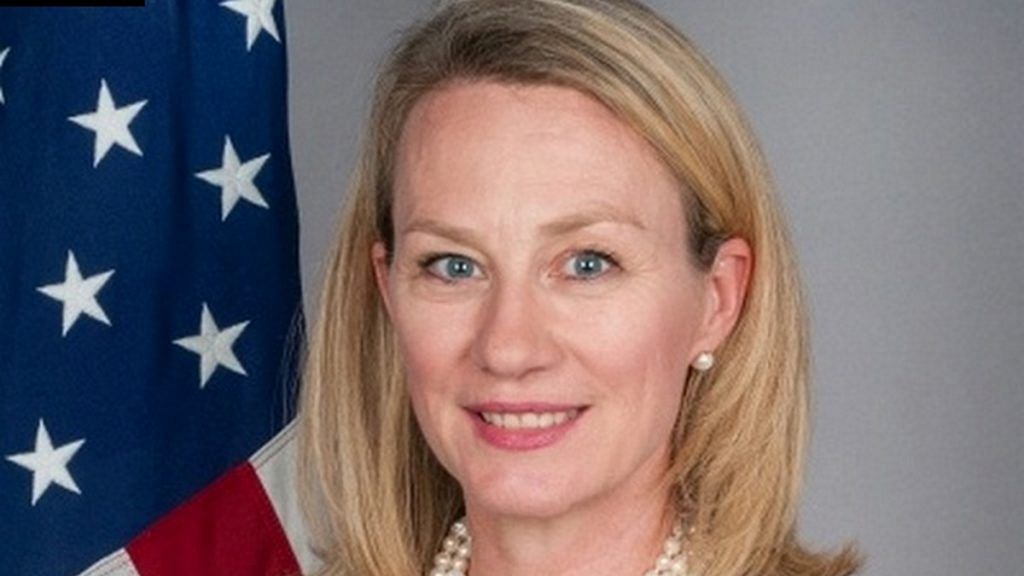New Delhi: The US has said the recent border scuffle between India and China is not “rhetorical”, and that it is an indication of Beijing’s “disturbing behaviour”, raising questions on its growing powers.
Alice G. Wells, the Principal Deputy Assistant Secretary of State, Bureau of South and Central Asian Affairs, said this in a select media briefing Wednesday over the Zoom app.
“This is a reminder that Chinese aggression is not always rhetorical and whether it’s in the South China Sea or whether it’s along the border with India, we continue to see provocations and disturbing behaviour by China that raises questions about how China seeks to use its growing power,” Wells said.
Wells, who is retiring from the post later this month, also said China’s behaviour is why “like-minded nations” are now “rallying” with each other under a handful of diplomatic groupings such as the ‘Trilateral’ (US, Japan and India) and the ‘Quadrilateral’ or ‘Quad’ (US, Japan, India and Australia), which are aimed at supporting the post-World War II economic order for free and open trade.
“What we want to see is an international system that provides benefits to everyone and not a system where there is suzerainty to China. So, I think the border disputes are a reminder of the threats posed by the China,” she added.
This is the first time that the US has spoken officially on the border tensions that took place earlier this month, “exchanging blows” in Ladakh and Sikkim.
Also read: India isn’t worried about tension with China, unlikely to give in to US pressure on Taiwan
Engagement with Taliban
On the issue of India playing a key role in the US’ talks with the Taliban, Wells said New Delhi is an “important” player, and that is why the US Special Representative for Afghanistan Reconciliation, Zalmay Khalilzad, made a hurricane tour to India at the peak of the Covid-19 pandemic.
“Obviously, India is a very important actor in Afghanistan, with $3 billion assistance that has already been pledged to the country. India is going to be a critical and is a critical player, which is why Ambassador Khalilzad travelled to New Delhi during the height of the Covid lockdown, because it was so critical to have those consultations and conversations,” Wells said.
During the trip, Khalilzad met External Affairs Minister S. Jaishankar, National Security Advisor Ajit Doval and Foreign Secretary Harsh Vardhan Shringla, seeking New Delhi’s direct engagement with the Taliban on its concerns on terrorism.
Wells also said it is up to India to decide whether it wants to “directly” engage in talks with the Taliban. She said such a move by India is critical because under a new political structure where there are chances of the Taliban coming into the mainstream, it is crucial to have ties with them.
“We believe that a healthy Afghanistan is going to need to have healthy relationship with India,” she said.
Also read: India unlikely to talk to Taliban directly despite US push to change stance
India still remains a protective market
According to Wells, India and the US are continuing to discuss the much-touted bilateral trade deal, which is expected to remain unfinished before President Donald Trump heads for re-elections in November this year.
“President Trump is very focussed on the trade relationship. There are concerns that India remains still a quite protected market that can be difficult sometimes, not providing a level-playing field for foreign companies,” she said, adding that India continues to raise tariffs.
Wells also highlighted that in a post-pandemic world, when countries are looking at de-globalisation and companies are onshoring more of critical production, efforts are also being made to diversify supply chains.
“This is a real moment of opportunity for India… Adopting more open and welcoming policies by reducing tariffs will allow manufacturing companies that are inside of India to be part of a global supply chain,” she asserted.
Wells added that India is one of the world’s foremost producers of pharmaceuticals, generic drugs and vaccines, and will hence play a critical role in the “treatment and health of the world as we move out of the pandemic”.
Also read: India needs more ‘regulatory stability’ to compete with China, US trade body chief says
